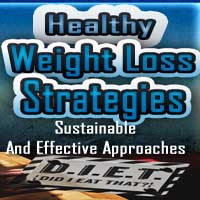



The gluten-free diet has gained widespread attention in recent years, with many people choosing to adopt it for various reasons, from medical necessity to potential health benefits. This dietary trend primarily involves eliminating foods that contain gluten, a protein found in wheat, barley, and rye. In this article, we will explore the relationship between a gluten-free diet and its impact on health.
1. Celiac Disease And Gluten Sensitivity: One of the primary reasons for adopting a gluten-free diet is the presence of celiac disease or non-celiac gluten sensitivity. In individuals with celiac disease, consuming gluten triggers an autoimmune response that damages the small intestine. Adhering to a strict gluten-free diet is the only effective treatment for celiac disease, as it prevents further damage and allows the intestine to heal. Those with non-celiac gluten sensitivity experience various symptoms, like digestive issues and headaches, which are alleviated by avoiding gluten.
2. Improved Digestive Health: For some individuals, a gluten-free diet can lead to better digestive health. This is particularly true for those who experience bloating, gas, and abdominal discomfort when consuming gluten-containing foods. Eliminating gluten can provide relief from these symptoms and promote overall gut health.
3. Weight Management: While a gluten-free diet doesn't inherently lead to weight loss, some people find it easier to maintain a healthy weight when they eliminate gluten-containing products. This may be because gluten-free diets often include fewer processed foods and more nutrient-dense options like fruits, vegetables, lean proteins, and gluten-free whole grains.
4. Potential Nutrient Deficiencies: One potential downside of a gluten-free diet is the risk of nutrient deficiencies. Many gluten-containing foods are fortified with essential nutrients like B vitamins and iron. When these foods are eliminated, it's crucial to find alternative sources to maintain proper nutrient intake.
5. Reduced Inflammation: Some individuals report reduced inflammation when they go gluten-free. Gluten has been associated with inflammatory conditions, and eliminating it from the diet can potentially provide relief to those with inflammatory disorders like arthritis.
6. Better Skin Health: Skin conditions like eczema and psoriasis have been linked to gluten sensitivity. Going gluten-free may lead to improved skin health and the reduction of these skin issues.
7. Increased Energy: Eliminating gluten from the diet can lead to increased energy levels, as the body no longer has to deal with the inflammation and digestive distress caused by gluten consumption.
8. Balanced Blood Sugar Levels: A gluten-free diet may help maintain more stable blood sugar levels, which can be beneficial for individuals with diabetes or those looking to prevent diabetes.
9. Mindful Eating: A gluten-free diet often requires heightened awareness of food choices, label reading, and a more mindful approach to eating. This can lead to better dietary habits and long-term health benefits.
A gluten-free diet can have a significant impact on health, especially for individuals with celiac disease or non-celiac gluten sensitivity. It can alleviate digestive issues, reduce inflammation, and improve overall well-being. However, it's essential to approach a gluten-free diet with care, as it may lead to nutrient deficiencies if not properly balanced. Before making any dietary changes, it's advisable to consult with a healthcare professional or a registered dietitian to ensure that you're meeting your nutritional needs while avoiding gluten-containing foods. For those who genuinely require a gluten-free diet, it can be a life-changing and health-improving choice.
A Blueprint For Thriving In Adversity
 Resilience is not an innate trait; it is a set of skills that can be developed over time. At its core, resilience involves a combination of mental and emotional processes that enable individuals to cope with stress, adapt to change, and navigate difficult situations with grace. Here are some key aspects of resilience:
Resilience is not an innate trait; it is a set of skills that can be developed over time. At its core, resilience involves a combination of mental and emotional processes that enable individuals to cope with stress, adapt to change, and navigate difficult situations with grace. Here are some key aspects of resilience:
Emotional Regulation: Resilient individuals can manage their emotions effectively. They understand their feelings and have the tools to handle them in a healthy way.
Adaptability: Resilience is closely linked to adaptability. Those who are resilient are more open to change and can adjust their plans and strategies as needed.
Problem-Solving: Resilient individuals approach challenges with a solution-oriented mindset. They seek opportunities for growth and learning in difficult situations.
Optimism: Resilience is associated with a positive outlook. Resilient people can find the silver lining in adversity and maintain hope for the future.
Building Resilience Skills
Develop Emotional Intelligence: Start by enhancing your emotional intelligence. This involves recognizing, understanding, and managing your own emotions and being attuned to the emotions of others. Emotional intelligence provides a strong foundation for resilience.
Cultivate Self-Awareness: Know yourself and your reactions to stress and adversity. Self-awareness allows you to identify your triggers and vulnerabilities, enabling you to respond more effectively to difficult situations.
Build A Support System: Surround yourself with a support system of friends, family, or a therapist. Social support is a crucial element in resilience, as it provides a safety net during tough times.
Tips And Insights
 1. Understanding Gluten: The first step in making dietary adjustments is understanding what gluten is and where it's commonly found. Gluten is a protein found in wheat, barley, and rye. It provides elasticity to dough and is prevalent in many staple foods like bread, pasta, and baked goods.
1. Understanding Gluten: The first step in making dietary adjustments is understanding what gluten is and where it's commonly found. Gluten is a protein found in wheat, barley, and rye. It provides elasticity to dough and is prevalent in many staple foods like bread, pasta, and baked goods.
2. Identify Gluten-Free Alternatives: The foundation of a successful gluten-free dietary adjustment is to identify gluten-free alternatives for your favorite foods. Fortunately, there's a wide range of gluten-free products available, including gluten-free bread, pasta, and flour. Experiment with different brands and types to find those you enjoy most.
3. Reading Labels: Master the art of reading food labels. Manufacturers are required to clearly label foods that contain wheat, but gluten can hide under different names like barley malt, modified food starch, or malt vinegar. Familiarize yourself with these terms to avoid accidental gluten consumption.
4. Focus On Naturally Gluten-Free Foods: Naturally gluten-free foods include fruits, vegetables, meat, poultry, fish, dairy products, legumes, and gluten-free grains like rice and quinoa. These form the basis of a healthy gluten-free diet and provide essential nutrients.
5. Avoid Cross-Contamination: Cross-contamination is a significant concern when it comes to gluten-free dietary adjustments. Ensure that your kitchen and cooking utensils are thoroughly cleaned to prevent contact with gluten-containing foods. If you share a kitchen with gluten-eating family members, designate gluten-free cooking areas and use separate equipment to avoid cross-contamination.
A Key To Heart Health And Overall Well-Being
 The Importance Of Cardiovascular Fitness
The Importance Of Cardiovascular Fitness
Heart Health: Cardiovascular fitness directly impacts heart health. Regular aerobic exercise strengthens the heart muscle, making it more efficient at pumping blood and reducing the risk of heart disease.
Improved Circulation: As cardiovascular fitness improves, blood vessels become more efficient at carrying oxygen-rich blood throughout the body. This can reduce the risk of high blood pressure and improve overall circulation.
Weight Management: Engaging in cardiovascular exercise helps burn calories, aiding in weight management and reducing the risk of obesity.
Enhanced Endurance: Improved cardiovascular fitness leads to increased endurance, making everyday tasks easier and reducing fatigue during physical activities.
Mental Well-Being: Cardiovascular exercise releases endorphins, which can improve mood, reduce stress, and enhance cognitive function.
Ways To Improve Cardiovascular Fitness
Aerobic Exercise: Engage in aerobic activities such as running, swimming, cycling, brisk walking, and dancing. Aim for at least 150 minutes of moderate-intensity aerobic exercise or 75 minutes of high-intensity aerobic exercise each week.
Interval Training: Incorporate interval training, which involves alternating between short bursts of high-intensity exercise and brief recovery periods. This approach can be highly effective in improving cardiovascular fitness.
Nurturing The Body And Mind
 The Power Of Botanicals
The Power Of Botanicals
Botanicals, or plants, have been used for centuries in traditional healing practices. These plants offer a rich source of natural compounds with various therapeutic properties. Holistic healing with botanicals involves using plants in multiple forms, including teas, tinctures, essential oils, and herbal supplements. Here are some key botanicals commonly employed in holistic healing:
Turmeric: Known for its potent anti-inflammatory and antioxidant properties, turmeric can alleviate conditions related to inflammation, such as arthritis and digestive issues.
Ginger: Ginger's soothing effects on the digestive system and its anti-nausea properties make it a staple in holistic healing.
Echinacea: Echinacea is often used to strengthen the immune system and ward off colds and infections.
Peppermint: Peppermint is renowned for its ability to soothe headaches, improve digestion, and calm the mind.
Lavender: Lavender essential oil is cherished for its calming effects, helping to reduce stress, anxiety, and improve sleep.
Valerian Root: Valerian root is used to treat insomnia, anxiety, and nervousness, promoting a sense of tranquility.
Chamomile: Chamomile's gentle qualities make it an excellent choice for reducing stress and promoting relaxation.
Balancing The Body And Mind
Holistic healing with botanicals aims to create a sense of equilibrium within the body and mind. It's not just about treating symptoms but addressing the underlying causes, which can often be stress, emotional turmoil, or imbalances in the body. By considering the person as a whole, holistic healing seeks to improve not only physical health but emotional and mental well-being as well.
Safety And Guidance
When delving into holistic healing with botanicals, it's crucial to seek guidance from a trained herbalist or healthcare practitioner. The effectiveness and safety of botanicals can vary from person to person, and potential interactions with medications must be considered. Safety and moderation are key principles of holistic healing.
 Key Components Of Holistic Stress Management:
Key Components Of Holistic Stress Management:
Physical Well-Being: The physical aspect of holistic stress management emphasizes the importance of maintaining a healthy body. Regular exercise, a balanced diet, and adequate sleep are fundamental to reducing stress. Physical practices like yoga, Tai Chi, and mindfulness-based activities can also be beneficial.
Emotional Regulation: Emotions play a significant role in stress management. Holistic approaches encourage emotional regulation through techniques like mindfulness, meditation, and deep breathing exercises. By fostering emotional resilience, individuals can better cope with stress.
Mental Well-Being: A healthy mind is vital for managing stress. Techniques like cognitive-behavioral therapy (CBT), positive psychology, and gratitude exercises can help individuals shift their mindset and reduce stress-inducing thought patterns.
Social Support: Holistic stress management acknowledges the importance of social connections. Engaging with friends, family, or support groups can provide emotional support and promote well-being.
Spiritual Well-Being: The spiritual dimension of holistic stress management does not necessarily refer to religious beliefs but rather to a sense of purpose, meaning, and connection with something greater than oneself. Engaging in activities that nourish the soul, such as meditation, reflection, or spending time in nature, can contribute to overall well-being.